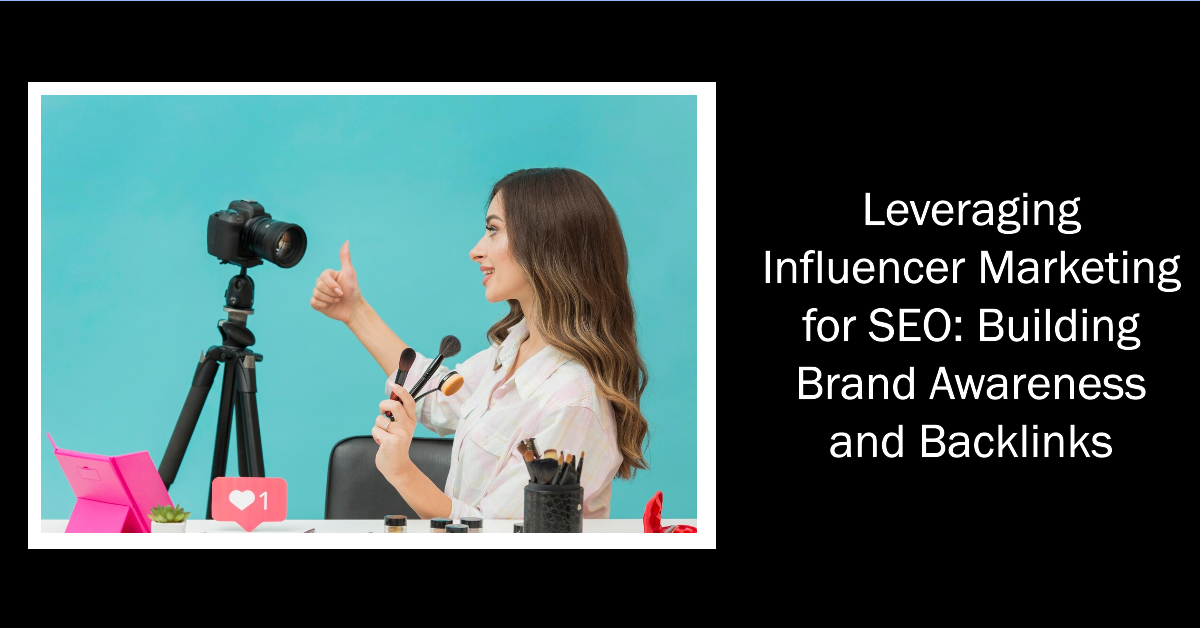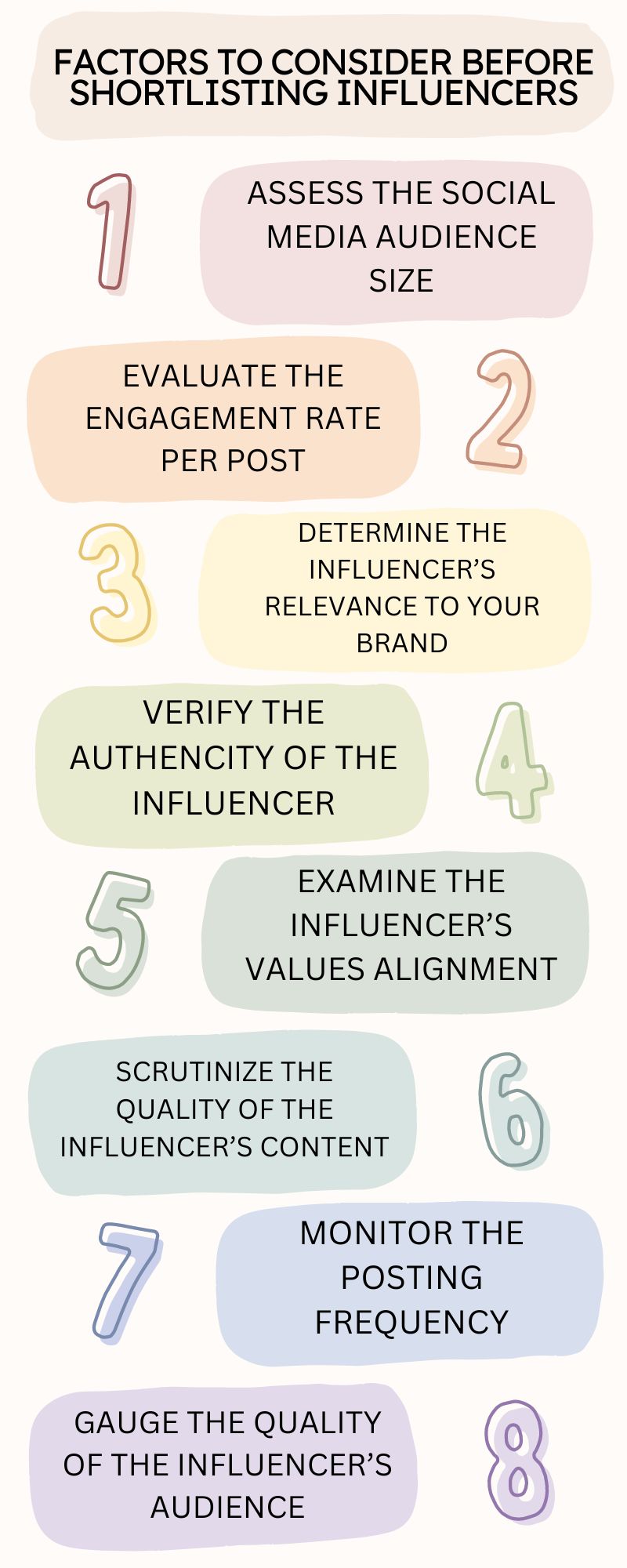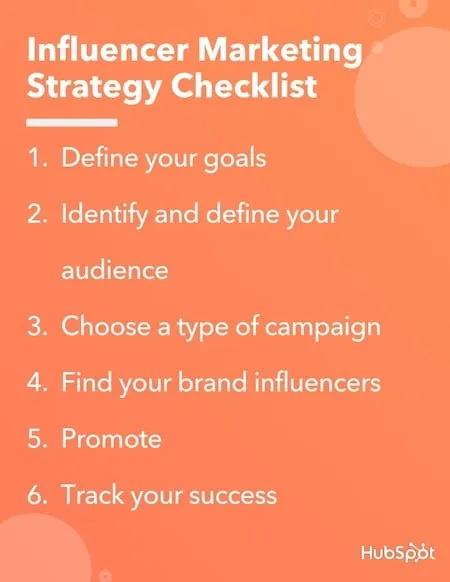Influencer marketing is projected to become a $24 billion industry by the end of 2024, altering the digital marketing environment. This effective technique uses the authority and reach of social media influencers to increase brand awareness and engagement.
Beyond simply amplifying brand messages, influencer marketing is an important channel for improving search engine optimization (SEO).
Businesses can leverage the art of persuasion and the science of SEO by strategically collaborating with influencers, increasing brand awareness, and building an authoritative online presence.
Influencer marketing is vital in the contemporary digital toolbox because of these two benefits.
Let’s take a closer look at how you can maximize the power of influencer marketing to boost your search engine optimization efforts and obtain measurable increases in authority and brand visibility.
What is Influencer Marketing?

Influencer marketing is a powerful instrument in the current digital marketing strategy toolset since it is truly revolutionizing the way brands interact with audiences.
These influencers use their social media channels to increase brand visibility and promote engagement. They are frequently seen as authorities or trendsetters in their respective niches.
Not only do they spread the word, but they also help their followers understand the message and make decisions about what to buy.
And guess what? This is not just us talking.
According to a recent survey of marketers from various industries, 94% agree that influencer marketing is a useful component of their campaign tactics.
That’s a pretty great endorsement, right?
Consider H&M as an example. They have one of the biggest Instagram followings in the fashion industry and are experts at working with influencers. One example is their collaboration with Ela Velden, a model, and fashion blogger Julie Sariñana for their fall 2017 catalog.
Sariñana’s obsession with H&M’s apparel led her to post about it on her own Instagram account, where she skillfully incorporated the brand into her daily routine while also engaging her followers.
This is the power of influencer marketing in action: a powerful combination of reach, resonance, and authenticity propels companies like H&M to the top of the social media success ladder.
Types of Influencers

Influencers are often classified depending on their follower count, which is directly related to their reach:
-
Nano Influencers (1K–10K followers)
Nano influencers may have a small following, but what they lack in quantity, they make up for in authenticity and interaction.
Perfect for specialized marketing and grassroots campaigns, their small, close-knit communities frequently trust their recommendations as they would counsel from friends.
-
Micro-Influencers (10K–100K followers)
Micro-influencers strike a balance between reach and relatability.
They have a bigger following than nano influencers, with 10,000–100,000 followers, but they nevertheless manage to preserve a strong sense of trust and authenticity.
Brands can reach specialized markets and encourage focused interaction by utilizing micro-influencers.
-
Macro Influencers (100K–1M followers)
Macro influencers have a large fan base, usually between 100,000 and 1 million.
As a result of their wide audience appeal and considerable reach, they are desirable collaborators for companies trying to expand their market share and raise brand recognition.
-
Mega or Celebrity Influencers (1M+ followers)
With more than a million followers, mega influencers—also referred to as celebrity influencers—are the elite of the influencer community. These influencers, who can be social media sensations or Hollywood stars, are frequently well-known household personalities.
The most effective uses of mega influencers are in large-scale marketing initiatives that attempt to maximize brand exposure and draw attention with their star power.
The SEO Benefits of Influencer Marketing
Leveraging Influencer Marketing for SEO Building Brand Awareness and Backlinks Leveraging Influencer Marketing for SEO Building Brand Awareness and Backlinks 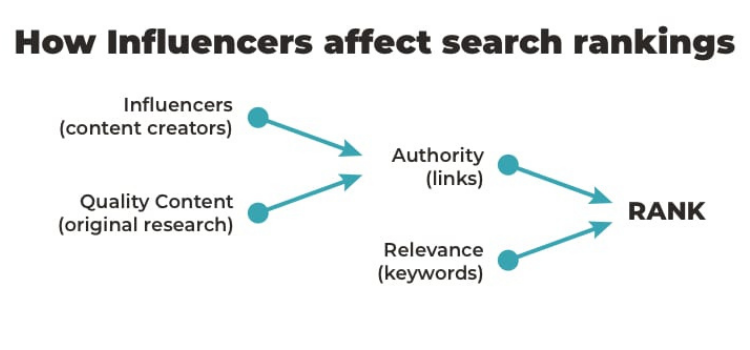
The benefits of influencer marketing and search engine optimization (SEO) are becoming apparent in the dynamic world of digital marketing. A closer look at influencer marketing’s SEO advantages is provided below:
-
Enhanced Brand Visibility and Authority: Influencer marketing can greatly increase a brand’s online visibility and authority by using influencers’ reach and trustworthiness. As a result of this greater visibility, search engines can see an increase in organic searches for the brand name or associated keywords, which would strengthen the brand’s authority.
-
Quality Backlink Generation: One of the most significant SEO benefits of influencer marketing is the ability to generate high-quality backlinks to a company’s website. Influencers that mention a link to a brand’s website within their content generate valuable inbound links, which indicate to search engines the brand’s relevance and legitimacy.
-
Content Amplification and Diversification: Content created by influencers can be an invaluable resource for search engine optimization. When influencers create content with relevant keywords and links to the brand’s website, they contribute to the larger content ecosystem that search engines crawl and index.
-
Social Signals and Engagement Metrics: Likes, shares, and comments on influencer content can indirectly impact SEO by signaling to search engines the content’s relevance and popularity. When influencer content achieves a high degree of engagement, it can help enhance search engine results.
Developing an Influencer Marketing Strategy
1. Setting Clear SEO and Influencer Goals
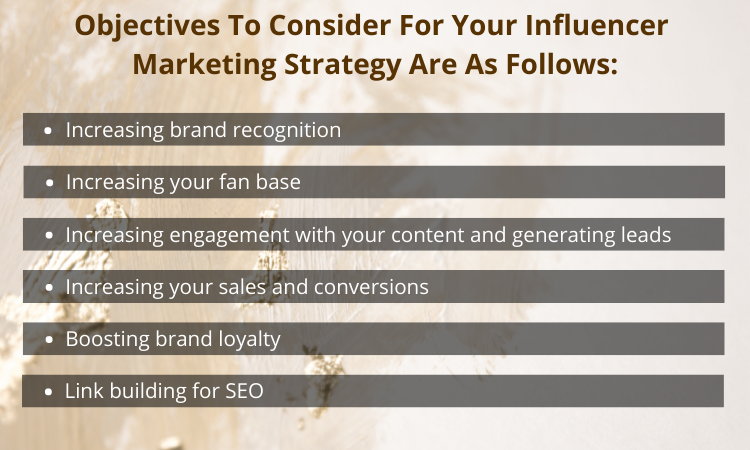
The primary step in creating a successful and effective influencer marketing plan is defining your influencer and SEO objectives.
First and foremost, it’s critical to pinpoint specific SEO objectives that influencers can help with. This could involve boosting website traffic, raising search engine ranks, or building high-quality backlinks.
Subsequently, companies need to match these SEO goals with their influencer marketing plans. This entails picking influencers with great care whose audience’s interests, demographics, and content match the brand’s target market and search engine optimization objectives.
Furthermore, brands should give influencers clear instructions and expectations for SEO-related goals, ensuring their content efficiently contributes to their SEO efforts.
Dunkin’ Donuts is an example of how goal-setting affects results. They made a very wise strategic move by hiring Charli D’Amelio to promote their products, which increased app downloads.
After her video went viral, Dunkin’ Donuts took advantage of the hype and launched “The Charli” drink. The fad quickly gained traction thanks to her enormous 143 million-strong TikTok fanbase, which resulted in an astounding 57% increase in app downloads.
This example shows how focused influencer partnerships can significantly impact increasing brand engagement and customer acquisition, underscoring the significance of matching marketing initiatives with specific goals.
2. Choosing the Right Influencers
An influencer marketing campaign’s success depends on choosing the right influencers. Here are some tips to help you find influencers who have the same values as your business and meet your SEO requirements:
-
Define Your Ideal Influencer Profile: Start by defining the qualities you’re looking for in influencers. Consider audience demographics, specialty expertise, engagement rates, and content style. Ensure these criteria align with your brand’s values, target demographic, and SEO goals.
-
Conduct Thorough Research: Use social media platforms, blogs, and industry magazines to identify potential influencers in your field. Find influencers who exhibit authenticity and credibility, regularly create high-caliber content, and interact with their audience.
-
Review Past Collaborations and Content: Invest some time in examining an influencer’s prior partnerships and content to ensure they reflect your business’s principles and messaging. Seek out influencers who have already collaborated with companies in your sector and generated content that appeals to their readership.
-
Establish Personal Connections: Once you’ve discovered prospective influencers, take the time to interact with them and develop relationships. Introduce yourself, describe the goals of your campaign, and see if they’d be interested in working together by emailing or contacting them on social media.
3. Crafting Campaigns That Link SEO and Influencer Efforts
Crafting influencer campaigns that seamlessly integrate with SEO efforts is essential for maximizing the impact of your marketing strategy.
Provide influencers with SEO keywords or phrases relevant to your brand, products, or target audience. Encourage them to naturally incorporate these keywords into their content, including captions, blog posts, or video descriptions.
Airbnb launched a successful Instagram campaign called #AirbnbExperiences, in which it partnered with influencers to showcase unique travel experiences available on its platform. Influencers shared visually appealing content featuring Airbnb listings and included relevant SEO keywords in captions.
Today, the #AirbnbExperiences hashtag boasts over 20,600 Instagram posts, captivating a diverse array of existing and prospective travelers.
Implementing Your Influencer Marketing Strategy
blog.hubspot.com
Implementing your influencer marketing strategy hinges on effective collaboration with influencers.
Here are some critical steps to ensure success:
1. Collaborating with Influencers
Personalize your outreach messages to influencers, demonstrating genuine interest in their content and aligning with their brand values. Here’s how to write a compelling outreach message:
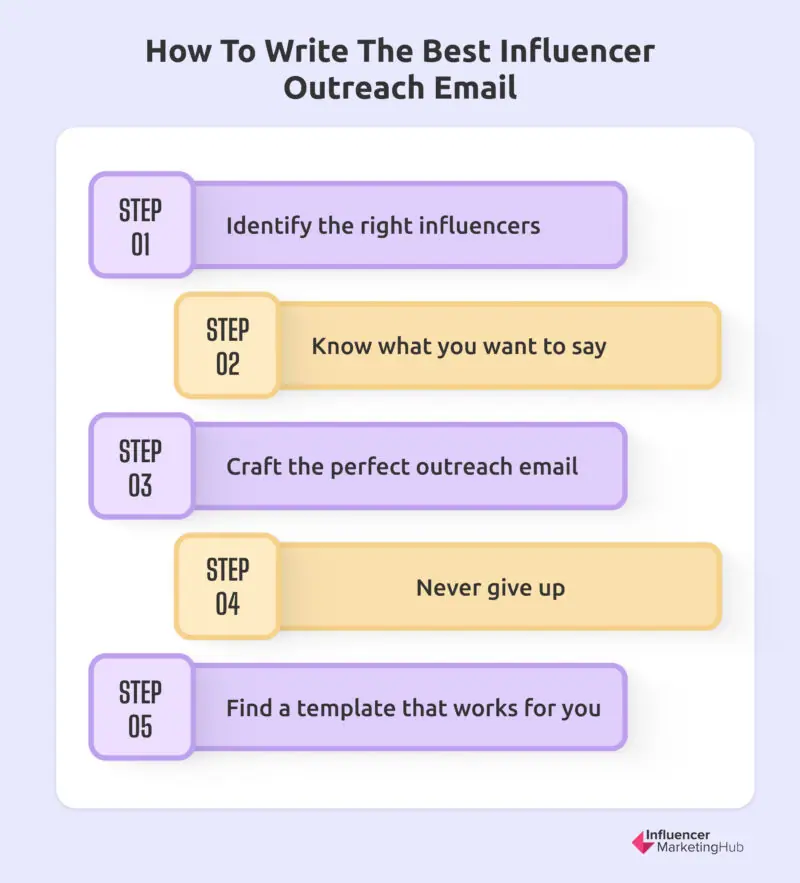
Clearly outline the scope of the collaboration, including deliverables, timelines, and compensation.
Respect their time and preferences and be open to negotiation to reach a mutually beneficial agreement. From the outset, establish transparent and open communication channels with influencers to facilitate seamless collaboration.
Provide detailed briefs outlining the content requirements, including key messaging, SEO keywords, and specific calls to action. Regularly communicate updates, feedback, and expectations throughout the campaign to ensure alignment and maximize results.
2. Content Creation and Distribution
When it comes to influencer marketing for SEO, certain types of content reign supreme in driving organic traffic and boosting search engine rankings:
-
Blogs: Informative and engaging blog posts are highly effective for SEO, as they allow for in-depth exploration of topics relevant to your brand or industry. Influencers can create blog content incorporating SEO keywords naturally while providing valuable insights, tips, or reviews that resonate with their audience.
-
Videos: With increased video content consumption, influencers can leverage platforms like YouTube or Instagram Reels to create SEO-friendly videos. From product tutorials and unboxings to vlogs and behind-the-scenes footage, video content can rank well in search engine results pages (SERPs) and drive traffic to your website.
-
Reviews: Authentic product reviews and influencer testimonials can significantly impact purchasing decisions and improve SEO. By sharing honest opinions and experiences with your products or services, influencers can generate user-generated content that attracts engagement and backlinks from interested consumers.
To optimize influencer content for SEO, influencers should adhere to the following guidelines:
-
Incorporating Backlinks: Encourage influencers to include backlinks to your website or specific landing pages within their content, such as in blog posts or video descriptions. These backlinks signal to search engines the relevance and authority of your website, ultimately enhancing your search rankings.
-
Optimizing Content: Provide influencers with SEO keywords and guidance on where to incorporate them naturally within their content. Additionally, ensure that influencers optimize their content for readability, mobile-friendliness, and multimedia elements to enhance user experience and SEO performance.
3. Leveraging Social Media and Other Platforms
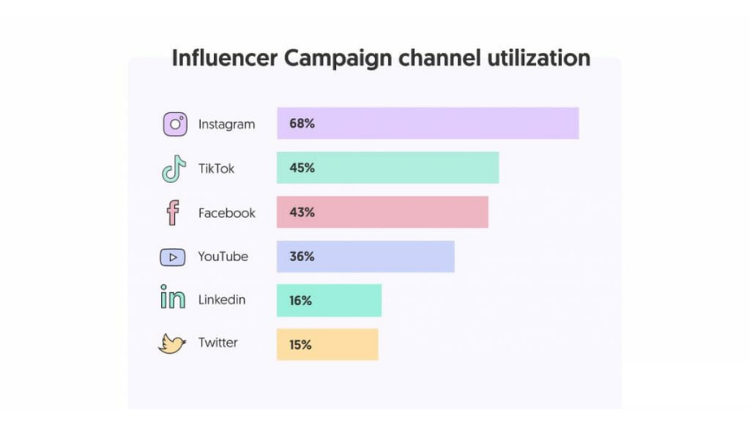
Leveraging various social media platforms strategically can amplify influencer marketing efforts’ reach and SEO impact. Here’s how different platforms can be utilized:
-
Instagram: Known for its visually attractive content, Instagram is ideal for showcasing products, lifestyle shots, and behind-the-scenes content. Influencers can leverage Instagram’s visual format to create engaging posts, stories, and reels that capture their audience’s attention.
-
YouTube: As a platform for long-form video content, YouTube offers opportunities for influencers to create in-depth product reviews, tutorials, and educational content. Influencers can optimize their YouTube videos for SEO by including descriptive titles, tags, and keyword-rich descriptions. Additionally, YouTube videos often appear in Google search results, providing additional visibility and potential for backlinks to your website.
-
Facebook and Twitter: While Instagram and YouTube may take the spotlight, platforms like Facebook and Twitter still hold value for influencer marketing. Brands can leverage influencers to create engaging posts, live streams, or Twitter chats that spark conversations and drive engagement. Additionally, sharing influencer-generated content on these platforms can increase brand visibility and social proof.
-
Blogs and Websites: Influencers can contribute SEO-rich content that drives traffic and backlinks to your brand through their blogs or websites. Guest blog posts, product reviews, and sponsored content on influencer websites can improve your brand’s online visibility and domain authority.
The Bottom Line
Influencer marketing is a powerful catalyst for enhancing SEO, brand visibility, and backlink acquisition. By collaborating with influential personalities across diverse platforms, brands can amplify their reach, cultivate authenticity, and drive meaningful engagement.
Influencers can effectively elevate a brand’s online presence through strategic content creation, optimization, and distribution, generating valuable backlinks that bolster search engine rankings.
As the digital landscape advances, leveraging influencer marketing for SEO remains a dynamic and indispensable strategy for building brand awareness, fostering consumer trust, and achieving sustainable growth in today’s competitive marketplace.

About the author: Vibhav Gaur, Business Head
Vibhav Gaur leads strategic operations and business growth at the organization. With a strong background in digital transformation and customer-focused solutions, he has helped numerous clients streamline their web presence and scale efficiently. His leadership ensures seamless execution across teams, with a commitment to delivering results and fostering innovation in every project.

